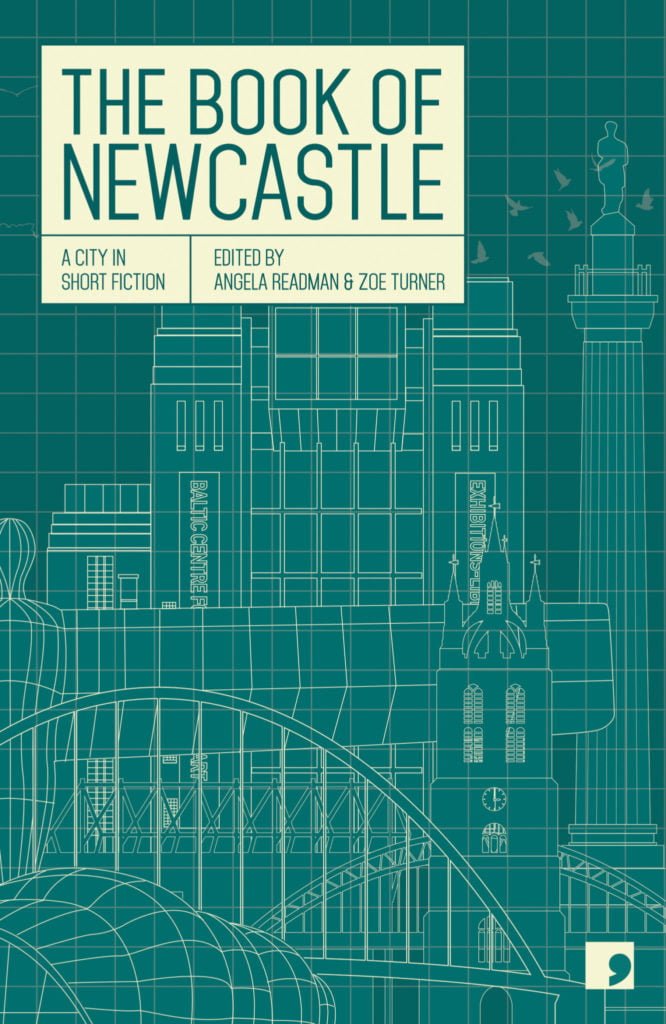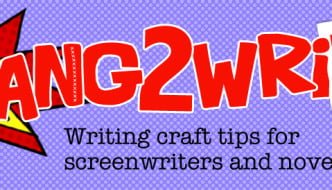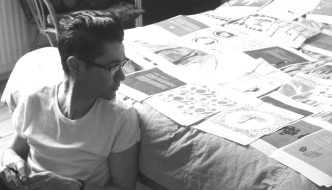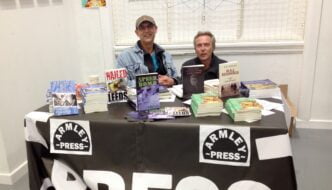NFA Column: Interview with ‘The Book of Newcastle’ co-editor Angela Readman
December 19, 2019

In January 2020, Comma Press will publish its fifth UK ‘Reading the City’ collection, ‘The Book of Newcastle’, following on from books of Leeds, Liverpool, Birmingham and Sheffield. Our award-winning series has traversed the globe and translated stories from cities as far reaching as Tehran, Cairo, Tbilisi, Dhaka and more, but it won’t underestimate the literary voices of North East England.
‘The Book of Newcastle’ features work from Jessica Andrews, whose debut novel ‘Saltwater’ was published this year to much acclaim and Newcastle’s literary treasure and author of ‘The Taxi Driver’s Daughter’, Julia Darling, as well as Crista Ermiya, Chrissie Glazebrook, Sean O’Brien, Angela Readman, Glynis Reed, Degna Stone, Margaret Wilkinson and winner of the inaugural NorthBound Book Award, J. A. Mensah.
We spoke to co-editor of the book, author Angela Readman, about her relationship with Newcastle and the stories featured in this forthcoming collection.
How long have you lived in Newcastle?
I’ve live in the city for over 26 years. I moved to Newcastle straight after graduating from university. Though I didn’t grow up in the city, it has always felt like I belonged there. It’s where I lived the whole of my adult life. I’ve recently moved up the road to Northumberland, but Newcastle will always be home to me. It’s that sort of city. It becomes part of you.
How do you think the setting of Newcastle has influenced your work as a writer and editor?
It’s funny, until recently I never overtly located my stories in Newcastle, but its influence is present. There’s both a lightness and darkness in a lot of my writing, a sort of down to earth attitude and a social awareness peppered with humour. The spirit of the city is that it has no airs and graces. Julia Darling’s work always captures that for me, and we were delighted to include her story ‘Calling from Newcastle’ in the collection. There’s a sense of honesty in her work that I really respond to, her characters acknowledge their imperfections and strive to move beyond them. There’s something quintessentially Northern about that that I find inspiring, as both a writer and editor.
Why do you think it’s so important to be publishing stories from the North, and the North East in particular?
It seems more important now than ever to hear Northern voices, not only by ear but also on the page. Just a few years ago, I read about a school inspector advising a teacher to sound less northern, in order to give her pupils more of a chance of losing their accents and improving their prospects. I found it alarming – that casual erasure of regional identity, as if we should be ashamed. It’s something I’ve come across myself, at school, and professionally, that idea I should seem less Northern if I want to succeed. I don’t think we should have to do that. It promotes the idea that people from other areas of the country are somehow better. We are all just people and deserve the same chance.
The North East has been particularly ignored when it comes to opportunities. ‘The Book of Newcastle’ feels like an important step in showcasing the city and the wealth of talent here.
What about Newcastle did you hope to convey through this anthology, and in your own contributing story?
During the process of editing, neither myself nor my co-editor Zoe Turner had an agenda. We felt it was more important to provide a space to let the region shine. We wanted to celebrate local talent and find out where Newcastle as a place may take the writing. It was amazing how that differed for every writer; the stories were a constant surprise. With my own story, I was drawn to symbols of the city and originally wrote about the Angel of the North, but chose magpies ultimately, after the nickname for Newcastle United F. C. There was a school field behind the terrace I once lived on that backed onto a youth club, and I’d often hear kids playing football after hours and at weekends. That suddenly stopped following government cuts. The youth club closed, and the school erected a 9ft security fence. It suddenly seemed so quiet. There were no kids anywhere, just grass behind bars. That stayed with me when I wrote the story ‘Magpies’. It was like someone had flicked a switch and turned off childhood.
The magpie is a smart creature, and quite beautiful, but it’s not delicate. It’s not a songbird. It’s a bird people see as common and often overlook. Somehow that resonated. It’s one of my favourite birds.
Is there a common theme that arises throughout this collection, and if so, what do you think it says about the people of Newcastle?
Something that comes across in most of the stories is a sense of the city always changing – sometimes for development, such as the quayside, and sometimes for the worse, with places falling into disrepair closing due to lack of funding. Margaret Wilkinson’s story, and Sean O Brien’s, both shine a light on that in different parts of the city. The decline of industry and job losses over the years has meant the city is constantly trying to adapt. I think that says a lot about the people of Newcastle and their incredible strength. People work hard here, they always have. It has often been a struggle, but that resilience is something to be proud of.
Do you think readers from outside of Newcastle might view the city in a different light to how it’s portrayed in the media or through stereotypes after reading these stories?
What frequently comes across in these stories and may surprise readers is the importance of the arts in the city. The presence of writers and local artists recurs throughout the collection, as do our parks and wildlife. Degna Stone’s story of the town moor paints a glorious picture of a wild space, whilst Crista Ermiya’s depicts the Ouseburn as an area of culture and art. This isn’t something we frequently hear about in the media based outside of the region. Newcastle has often been known as a party city and for its nightlife, though that seems to be changing. There’s a lot more to us than the stereotypes of the past. I hope people who have never been to Newcastle may read the stories and see that.
What is it about the short story form that you think lends itself to the exploration of new places and lives?
Short stories are perfect for introducing us to people we have never met. They are like postcards from places we have never been, snapshots of lives we never lived. The beauty of stories is that they are incredibly condensed. We get an intense hit of atmosphere, location and mood. Longer work may seem like a commitment to some, a journey to somewhere not everyone is sure they want to go, but with a story we are right there, dropped into a place and invited to look around. It’s a wonderful way to see a city; the view has been carefully framed for us and is incredibly clear.
Where would you recommend people go if they wanted to visit Newcastle for the first time?
There are so many places everyone should visit, the galleries and museums, the quayside, all of that, of course. But, personally, I’d say go to the Grainger Market. Everyone needs to eat, and this is the place for it. It’s an honest working market with a sense of history, but it’s also where you’ll find small local businesses that do amazing food. SnackWallah makes the most delicious fresh vegan street food; I love to perch on a stool and have lunch, watching the shoppers go by. The same goes for pizza. Slice not only serves the best in the city, it’s some of the finest pizza I’ve had anywhere.
Angela Readman’s short stories have won the Costa Short Story Award, The Mslexia Story Prize, and The Anton Chekhov Award for Short Fiction. Her debut collection ‘Don’t Try This at Home’ was published by And Other Stories. It won The Rubery Book Prize and was shortlisted in the Edge Hill Short Story Prize in 2015. She also writes poetry, and her collection ‘The Book of Tides’ was published by Nine Arches in 2016. ‘Something Like Breathing’, her first novel, was published by And Other Stories in 2019.
The Book of Newcastle is edited by Angela Readman & Zoe Turner, and is published by Comma Press in January 2020.
Go to the website to pre-order the collection now.
Filed under: Written & Spoken Word
Tagged with: book, city, Identity, Newcastle, North, place, short story, writing



Comments